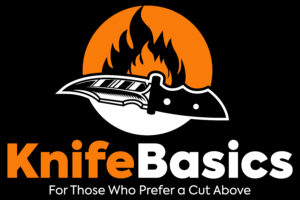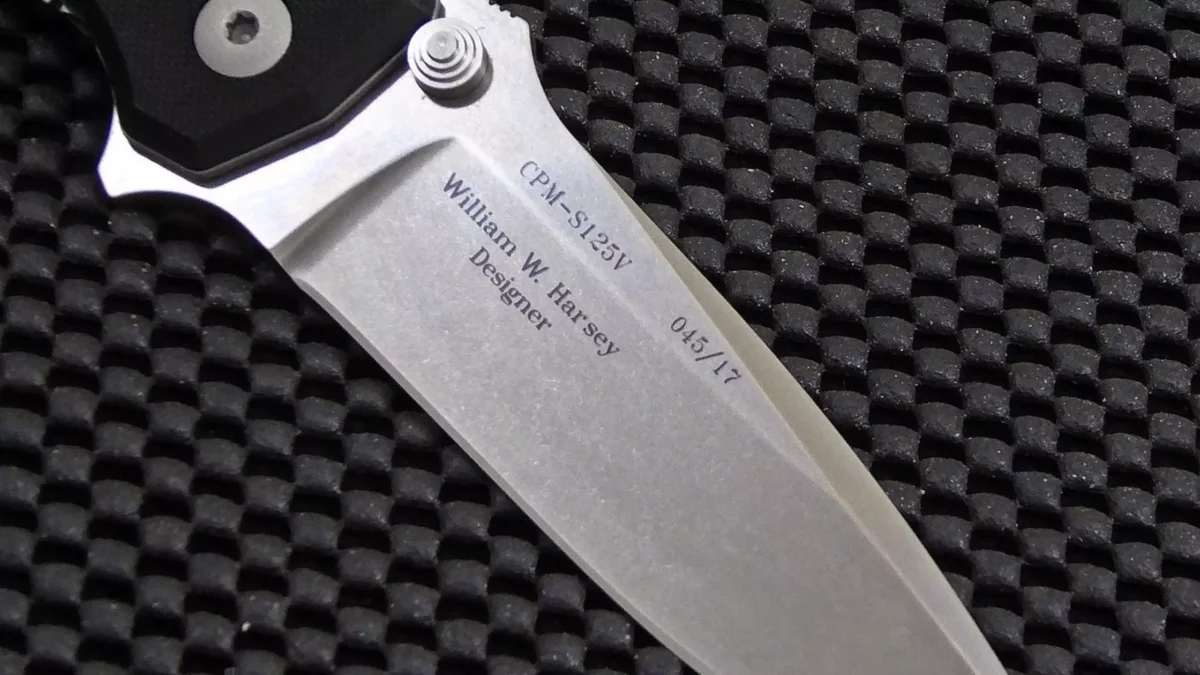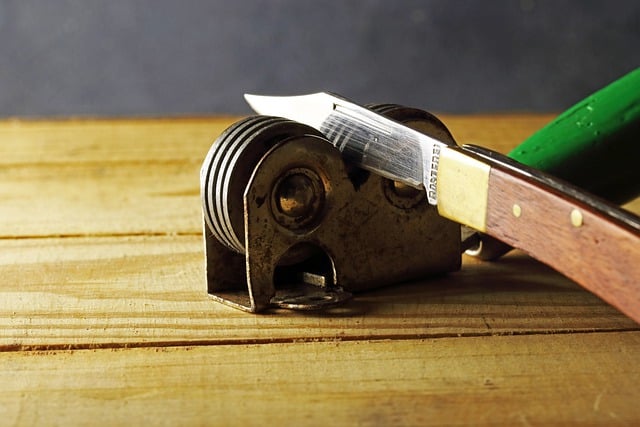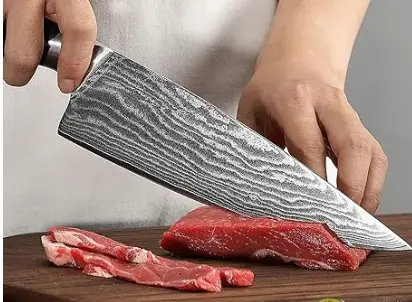When it comes to choosing the best steel for your knives, making an informed decision can be overwhelming. With a wide variety of options available, it’s important to understand the characteristics of different steels to ensure the longevity and performance of your blades.
In this ultimate guide, we will navigate you through the intricacies of steel selection, helping you find the perfect match for your knives. Whether you’re a professional chef looking for a durable and razor-sharp blade or a home cook who values easy maintenance, we’ve got you covered.
With our comprehensive breakdown of steel types, we’ll dive into the key factors that determine steel quality, such as hardness, corrosion resistance, and edge retention. You’ll also learn about popular steel brands and their unique offerings, allowing you to make an educated decision based on your personal preferences and budget.
So, if you’re ready to take your knife collection to the next level, grab your cutlery and let’s dive into the fascinating world of steel for knives!
Understanding the importance of steel in knife performance
When it comes to choosing the best steel for your knives, it’s crucial to understand the significant role that steel plays in determining their overall performance and longevity. The quality of steel directly impacts three key factors: hardness, corrosion resistance, and edge retention.
First, hardness refers to the steel’s ability to resist deformation under pressure. A harder steel will be less prone to bending or chipping, resulting in a knife that maintains its sharpness for longer periods. However, it’s important to strike a balance between hardness and toughness. While harder steels provide excellent edge retention, they can be more brittle and prone to breaking under excessive force.
Secondly, corrosion resistance is a crucial consideration, especially if you plan on using your knives in a wet or humid environment. Stainless steels, such as 440C or VG-10, are renowned for their corrosion resistance properties, making them ideal for outdoor or kitchen knives that are frequently exposed to moisture.
Lastly, edge retention refers to how well a knife can hold its sharpness over time. High-carbon steels, such as A2 or D2, are known for their exceptional edge retention. These steels can withstand heavy use without requiring frequent sharpening, making them popular choices among professional chefs and avid knife enthusiasts.
Common types of steel used in knife making
Now that we understand the importance of steel in knife performance, let’s explore some common types of steel used in knife making:
1.Stainless Steel: Stainless steel is a popular choice for knives due to its excellent corrosion resistance and ease of maintenance. It contains a minimum of 12% chromium, which forms a protective layer on the steel’s surface, preventing rust and staining. Some commonly used stainless steel alloys include 440C, VG-10, and S30V. For an in depth look at stainless steel, our recent contribution will exlain it further in What Is The Best Stainless Steel For Knife Making?
2. Carbon Steel: Carbon steel, on the other hand, offers superior hardness and edge retention compared to stainless steel. However, it is more susceptible to rust and requires regular maintenance to prevent oxidation. Popular carbon steel options include A2, D2, and 1095.
3. High-Speed Steel (HSS): HSS is a type of tool steel known for its exceptional hardness and heat resistance. It is primarily used in industrial applications and specialized knives, such as those used in cutting tools or machining operations.
4. Damascus Steel: Damascus steel is renowned for its beautiful and unique patterns. It is not a specific type of steel but rather a forging technique that involves layering multiple types of steel together. The result is a blade with exceptional strength, sharpness, and aesthetics.
Factors to consider when choosing the best steel for knives
When choosing the best steel for your knives, it’s essential to consider several factors that align with your specific needs and preferences. Here are the key factors to keep in mind:
Hardness and toughness: Finding the right balance
As mentioned earlier, hardness and toughness are critical factors to consider when selecting a steel for your knives. Blades that are too hard may be more prone to chipping or breaking, while blades that are too soft may not hold their edge for long. It’s important to find the right balance based on the intended use of the knife. For heavy-duty tasks, a tougher steel is recommended, while for tasks that require razor-sharp precision, a harder steel may be more suitable.
Corrosion resistance: Protecting your knives from rust
If you plan on using your knives in a wet or humid environment, corrosion resistance becomes a top priority. Stainless steel is the go-to choice for its excellent resistance to rust and staining. However, it’s worth noting that not all stainless steels are created equal. Some grades offer better corrosion resistance than others, so be sure to research the specific stainless steel alloy before making a purchase.
Edge retention: Keeping your knives sharp for longer
Edge retention refers to how well a blade can maintain its sharpness over time. For professional chefs or avid cooks who value sharpness above all else, steels with high carbon content, such as A2 or D2, are excellent choices. These steels can withstand heavy use without frequent sharpening, making them ideal for tasks that demand prolonged sharpness.
Heat treatment: Enhancing the performance of your steel
Heat treatment is a crucial process that enhances the performance of steel. It involves heating the steel to a specific temperature and then cooling it rapidly or slowly, depending on the desired properties. Proper heat treatment can significantly impact the hardness, toughness, and overall performance of the steel. When choosing a knife, consider the manufacturer’s reputation for their heat treatment processes.
Popular steel options for different knife applications
Now, let’s explore some popular steel options for different knife applications:
1. Chef’s Knives: For professional chefs or home cooks who prioritize sharpness and edge retention, high-carbon stainless steels like VG-10 or S30V are excellent choices. These steels, often found in chef’s knives, offer exceptional sharpness and are easy to maintain.
2. Outdoor Knives: For outdoor enthusiasts or survivalists, corrosion resistance is paramount. Stainless steels like 440C or S35VN are highly recommended due to their excellent rust resistance and durability.
3. Hunting Knives: Hunting knives require a balance between toughness and edge retention. Carbon steels like A2 or D2 are often preferred for their excellent edge retention and ability to withstand heavy use.
4. EDC (Everyday Carry) Knives: EDC knives are meant for everyday tasks and should strike a balance between durability, corrosion resistance, and ease of maintenance. Stainless steels like 154CM or CPM-S30V are popular choices for their all-around performance.
- Multipurpose Knife Set: This kitchen knives set includes 8" Chef Knife, 8" Slicing Knife, 7" Santoku Knife, 8" Serrated Bread Knife, 5" Utility Knife, 3.5" Paring Knife, Kitchen Shears and 6 pcs Blade Guards
- Anti-rust coating: The healthy anti-rust coating protects the knife from oxidation and dishwasher safe, while the non-stick coating ensures the blades stay clean all day long
- Easy to carry: Each knife comes with a blade guard for safe, compact storage in your kitchen cupboard. These knives are also easy to carry when camping or storing in your RV
- Perfect Holiday Gift: Ideal for kitchen enthusiasts or new cooks, this knife set meets all cooking needs. It makes an excellent holiday gift for family, friends, lover and colleague
- Lifetime Warranty: Every knife set is backed by rigorous quality inspection, we provide a lifetime warranty for every customer, ensuring superior customer service and peace of mind with every purchase
- ALL-IN-ONE KITCHEN SET - 15-piece knife set includes. 8" chef's knife, 8" slicing knife, 7" Santoku knife, 8" serrated bread knife, 5" utility knife, 3.5" paring knife, 6 4.5" serrated steak knives, 1 kitchen shear and hard wood knife block with built-in knife sharpener
- HIGH PERFORMANCE - HUNTER.DUAL kitchen knife set is stain and rust resistant and can be used with high frequency or after long periods of inactivity to fully utilize the life of the knives
- NON-STICK & RUST RESISTANT - With a black coating that prevents oxidation of the steel, the kitchen knife set will last a long time and remain non-stick and rust resistant
- SHARP BLADES & NON-SKID HANDLE - Each of HUNTER.DULA knives is carefully tuned to be the sharpest it can be and wears a built-in sharpener. The ergonomically designed handle provides a comfortable grip and the handle will no longer loosen or fall off
- DISHWASHER SAFE - The knife set can be washed in the dishwasher, easy and quick to operate, and dry the knife set after cleaning for easy storage, not taking up space
- High-Quality Stainless Steel Blades
- Ergonomic Handle for Comfortable Control
- Lifetime Warranty
Conclusion: Making an informed decision for your knife steel
Choosing the best steel for your knives is a personal decision that depends on your specific needs and preferences. Understanding the different factors that contribute to steel performance, such as hardness, corrosion resistance, and edge retention, will help you make an informed decision.
Remember to consider the intended use of the knife and the environment in which it will be used. Whether you’re a professional chef in need of a razor-sharp blade or a home cook looking for easy maintenance, there is a perfect steel out there for you.
So, the next time you’re in the market for a new knife, take the time to research the various steel options available. Armed with the knowledge from this ultimate guide, you can confidently choose the best steel for your knives, ensuring they stay sharp, durable, and reliable for years to come. Happy cooking!






